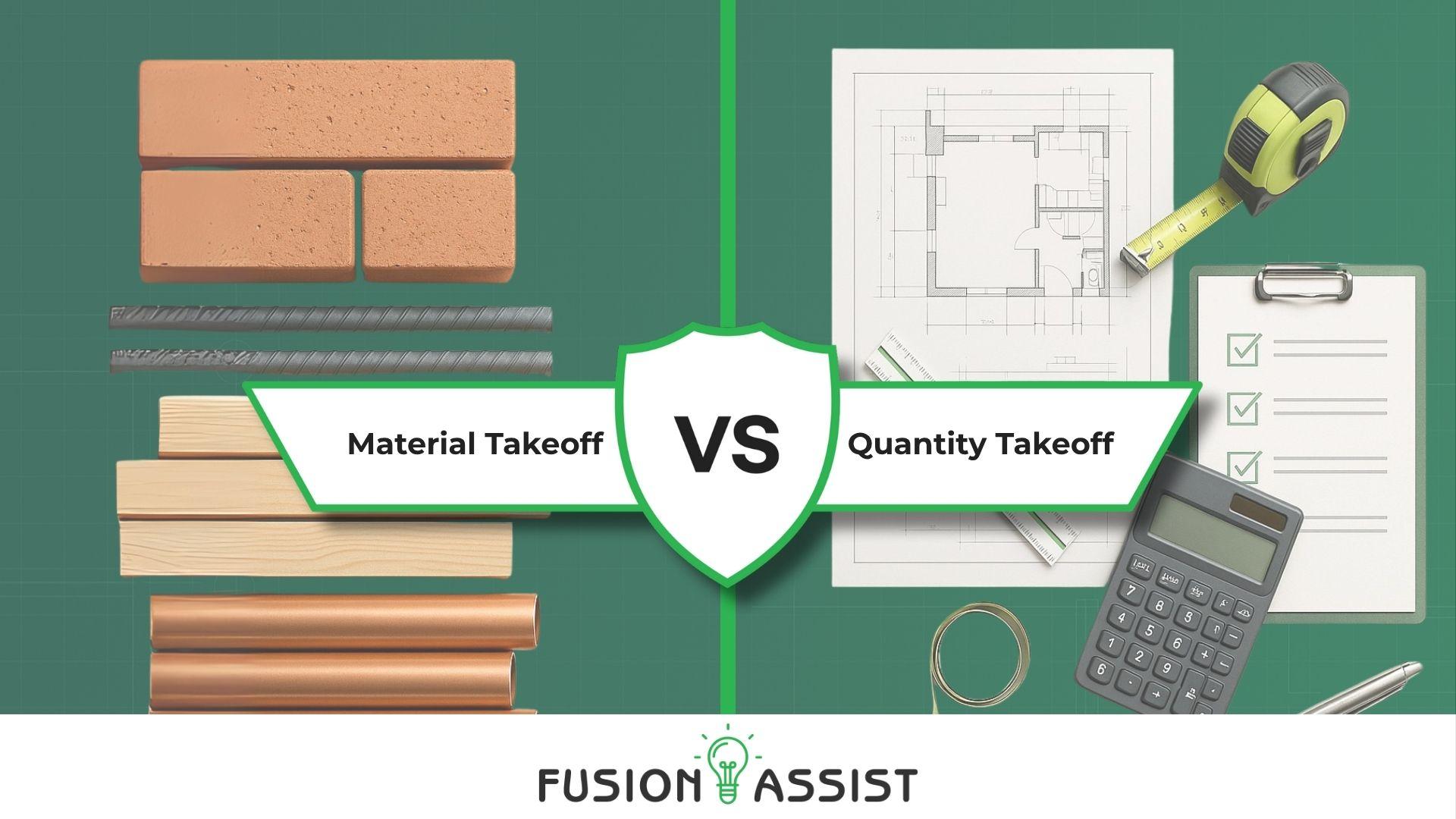Table of Contents
What is a Material Takeoff (MTO)?
A Material Takeoff (MTO) is the process of listing and quantifying all materials required for a project. It comes directly from construction drawings and specifications and is the foundation for procurement and cost estimating.
An MTO includes:
- Pipes, rebar, steel beams, insulation
- Lumber, drywall, glass
- Roofing sheets, flooring, fasteners
Example: For a residential project, a material takeoff may specify:
- 2,500 linear feet of copper piping (Type L, ¾ inch)
- 1,000 sheets of 4×8 drywall
- 120,000 sq. ft. of roofing shingles
The result: a shopping list for procurement and vendor negotiations.
What is a Quantity Takeoff (QTO)?
A Quantity Takeoff (QTO) focuses on measuring the scope of work directly from construction drawings. Unlike MTO, which lists materials, QTO captures the amount of work needed.
QTO usually includes:
- Counting items (doors, windows, fixtures)
- Measuring systems (roofing, flooring, walls)
- Calculating quantities (cubic yards of concrete, square feet of insulation)
- Identifying labor needs (man-hours, equipment)
Example: For the same project, a QTO may calculate:
- 3,000 sq. ft. of drywall installation
- 2,000 sq. ft. of roofing surface
- 200 window openings
The result: an estimate of work effort needed, which drives labor and schedule planning.
Material Takeoff vs Quantity Takeoff: 7 Essential Differences
Here’s a quick comparison table contractors can use:
| Feature | Material Takeoff (MTO) | Quantity Takeoff (QTO) |
|---|---|---|
| Focus | Specific materials | Scope of work from drawings |
| Output | Shopping list with specs | Labor + work estimates |
| Use Case | Procurement, vendor pricing | Scheduling, budgeting |
| Example | 100 tons of steel rebar | 1,500 sq. ft. drywall installation |
| Detail Level | Exact materials (sizes, grades) | General counts, areas, volumes |
| Accuracy | High for procurement | High for scheduling |
| Who Uses It | Procurement teams | Estimators, project managers |
Why the Distinction Matters in the U.S.
In U.S. markets like Texas, Florida, and New York, contractors must carefully separate material vs quantity takeoffs to avoid errors:
- Recommendation errors – using the wrong specs
- Scheduling issues – misjudging labor quantities
- Budget overruns – underestimating materials
By separating MTO and QTO, contractors achieve greater efficiency and accuracy in bids.
Common Mistakes Contractors Make
- Treating MTO and QTO as the same thing
- Not updating takeoffs when drawings change
- Over-relying on manual calculations → higher error risk
- Ignoring specifications (e.g., wrong grade steel or wrong pipe size)
How Fusion Assist Helps Contractors
At Fusion Assist, we provide specialized construction estimating services for U.S. contractors:
- ✅ Accurate Quantity Takeoffs – directly from digital drawings.
- ✅ Detailed Material Takeoffs – converting QTO into vendor-ready MTO lists.
- ✅ Linked Estimates – fully formatted reports for easy submission.
- ✅ Time Savings – let our experts handle calculations while you manage the build.
💡 Whether it’s a high-rise in New York or a residential build in Texas, we ensure your takeoffs are accurate, efficient, and contractor-ready.
Frequently Asked Questions
1. Are material takeoffs and quantity takeoffs always done separately?
Yes. While related, they serve different purposes. MTO helps with procurement; QTO with labor and scheduling.
2. Do software tools replace the need for estimators?
No. Tools speed up calculations, but experienced estimators interpret drawings correctly.
3. How often should takeoffs be updated?
Every time plans or specifications change. Even a small revision can impact costs significantly.
4. How can Fusion Assist save me time?
By outsourcing takeoffs to Fusion Assist, you save hours of manual work while ensuring accuracy.
Conclusion
Understanding the difference between Material Takeoff (MTO) and Quantity Takeoff (QTO) is critical for U.S. contractors. MTO creates the shopping list; QTO measures the labor effort. Both are essential, but confusing them can lead to major cost overruns.
At Fusion Assist, we make sure you never have to guess. Our team provides clear, professional, and ready-to-bid estimates.
👉 Ready to stop wasting time and win more bids? Contact Fusion Assist today.




